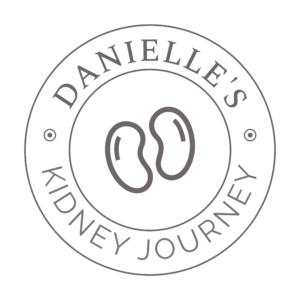The Fleeting Nature of Gratitude
Hello Everyone,
I remember when I was in the hospital last February, I felt so appreciative to be alive.
I had endured multiple surgeries, mind-altering pain medication, and relentless physical suffering. It didn’t help that, since I was being monitored around the clock, I was woken up every four hours. My lucid nightmares mirrored my body’s battle—my subconscious fighting for every ounce of survival.
On paper, I had a near-death experience. But was that my reality? I don’t know. What I do know is that psychologically, the hospital was one of the most trying times of my life.
In those dark moments, what tethered me to the world was my family. I had a deep appreciation for my dad rubbing my back, my mom holding my hand, the baby’s weight in my arms—these small, physical reminders kept me here.
That appreciation continued when I came home. My body was wrecked, and I couldn’t physically carry my son, but when someone placed him in my arms, it was as if time stood still. Each molecule in our bodies that touched felt electrified with magic, pulsing outward, a feeling I never wanted to stop.
Slowly, over time—through dialysis, migraines, fatigue, the daily schedule of waking up, playing with Barney, attempting to write, eating, walking, grocery shopping—that magic, that acute awareness of being alive, started to flicker away. It didn’t disappear entirely; there were still moments of immense presence and gratitude. But those long stretches of appreciation went from hours to minutes to seconds.
This time, coming out of the hospital, I noticed something similar to my first experience. While I wasn’t overwhelmed by suffering nightmares followed by fleeting moments of peace, what struck me was the mental clarity and the absence of extreme fatigue.
Before, my mind had been like a fogged-up windshield—trying to clear with wipers, the air system, or a hand leaving streaks on the glass. Now, my mind was like a clear day—Windexed and free of streaks.
Even though once again, I couldn’t carry my son, just being in the playpen with him as he toddled around, hearing his giggles, watching him bang on something with joy—these moments brought me immense joy and deep appreciation for being alive.
There was something different this time, too. I felt an intense gratitude toward Brad, my donor, who gave me this gift. In many ways, my brain cannot fathom how different I feel, and then I get overwhelmed with gratitude for this immense gift. Because of him, I can sit here, clear-headed, watching my son play without the crushing weight of fatigue. I can be here in a way I haven’t been in over a year. And yet, I know Brad’s recovering too, feeling the aftermath of his own sacrifice, and that truth sits heavy in my chest. I cry thinking about the sacrifice—taking time off work, not physically being able to do things for a while, the potential pain he might be in, and the fatigue he might experience as his body adjusts to having one kidney.
Sometimes, I fear this is like The Notebook, by Nicholas Sparks—a love story where a woman, lost in the fog of dementia, has a fleeting moment of clarity with her long-time husband. For that brief time, they are together again, whole, as if nothing had ever been lost. And then, just as suddenly, the moment disappears, and she’s back in her fog. Her husband is so grateful for that small moment with her, but it’s deeply sad when it’s over.
My fear is twofold: I’ll lose my kidney somehow, or that my deep appreciation for life will fade. I don’t want my kidney to go, and I don’t want this appreciation for life to fade either. But if either does, I’m so grateful for the time that I had them and cherish them so much.
I’m relishing the experience of gratitude, presence, and being alive all at once. It’s an addictive feeling, like coming home from vacation and not wanting the high to fade.
It’s also like attending a funeral for a friend’s parent—feeling sad for them, grateful it isn’t you, and momentarily struck by a renewed appreciation for life. But as the days, weeks, and months pass, that feeling leaves.
I don’t think people talk enough about the fleeting nature of immense gratitude and the sadness that comes with its fading. It creeps up in a walk or a moment, where gratitude and the recognition that it’s leaving come together. We also don’t talk about the slow, gradual mourning that follows as the mundane day-to-day life returns.
With my hyperawareness, I’m noticing my day-to-day routine coming back. While I appreciate that, I can feel the gratitude slowly leaving me, and I don’t want it to go. I feel like I’m grasping at it, pleading, please stay, please stay, but it keeps slipping through my fingers.
Yes, gratitude practices, meditation, prayer, and mindfulness can help invoke the feeling, but in my experience, they only go so far. There’s a tension between wanting to hold on to gratitude, practicing ways to keep it, and watching it fade away. And there’s something deeply human about it fading despite my best efforts.
What’s left is a longing—a desire to go back to it, to experience it again (hopefully not through another crisis). But the reality of these conflicting tensions seeps in.
Please note, I’m not looking for advice on how to keep the gratitude alive—I know how. But I don’t believe I’ve read an essay before talking about this fleeting nature, and I wanted to write about it.
With love,
Danielle
Interested in becoming a living kidney donor? Learn more through DOVE, a nonprofit supporting veterans in need.



